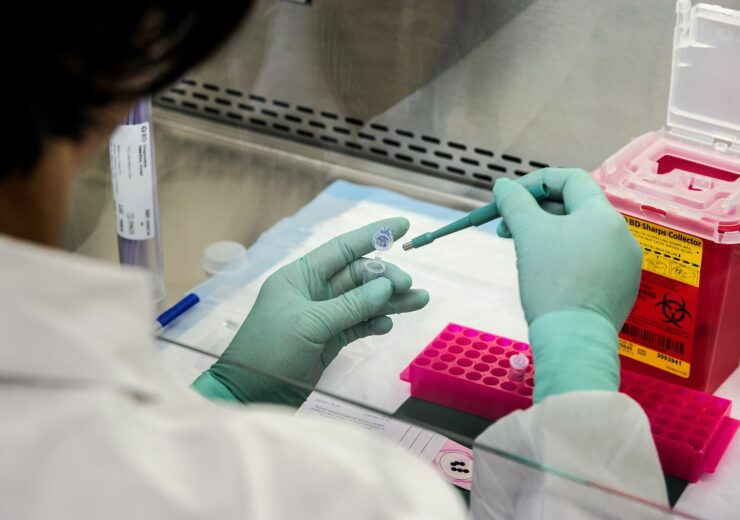IsoPSA is said to be a blood-based prostate cancer test that is used to triage patients at risk for high-grade prostate cancer to biopsy

IsoPSA is a non-invasive, blood-based prostate cancer test. (Credit: CDC on Unsplash)
Biotechnology firm Cleveland Diagnostics has partnered with US-based Quest Diagnostics to expand patient access to its IsoPSA prostate cancer test.
The US-based Cleveland has designed the IsoPSA as a non-invasive, blood-based prostate cancer test to triage patients at risk for high-grade prostate cancer to biopsy.
Under the agreement, patients will be able to access IsoPSA and, following a doctor’s order, provide a blood sample for testing at any Quest Diagnostics patient service centre across the country later this year.
Quest Diagnostics, which has more than 2,100 centres in the US, will deliver the specimens to Cleveland Diagnostics’ facility for testing .
Both parties anticipate that in the second quarter of 2023, doctors will be able to start recommending the test to patients through Quest Diagnostics.
According to the biotechnology firm, IsoPSA offers extra information on whether the patient’s elevated prostate-specific antigen (PSA) levels are caused by high-grade cancer or another ailment.
It thus enables doctors and patients to make decisions about whether to have a prostate biopsy.
Cleveland Diagnostics CEO Arnon Chait said: “We are very pleased to collaborate with Quest Diagnostics to expand patient access to IsoPSA. We believe Quest’s broad reach and extensive laboratory services expertise will provide patients and their physicians with unparalleled access to transformative clinical insights.
“As the leader in oncology testing, Quest is aligned with Cleveland Diagnostics’ vision of providing physicians and their patients exceptional and more definitive understanding of their prostate conditions.”
Cleveland said that the IsoPSA test aids in the risk prediction of prostate cancer by examining the partitioning behaviour of PSA isoforms linked to cancer.
The test indicated a considerable improvement in detecting high-grade prostate cancer in a sizable, prospective, multicentre clinical investigation. Additionally, it reduced needless biopsies by 55% in a separate study.
